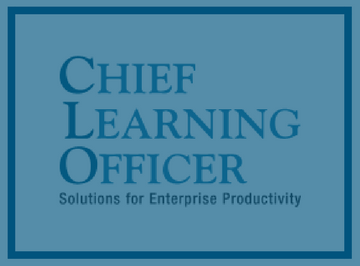Craft Tomorrow’s Workers Today
Craft Tomorrow’s Workers Today
November 4, 2015
Chief learning officers have an outstanding opportunity to create a better worker. They’re uniquely suited to take on the task. And the time is right.
For decades, industry has been transitioning from manual to knowledge work. According to the U.S. Bureau of Labor Statistics, from 2002 to 2013, America lost 2 million manufacturing jobs, while total employment grew by 5 million workers. Some of the manufacturing jobs were lost to automation and offshoring. Much of the growth is because of a rising need for knowledge workers, who know how to search out and use the right information. They are the workers in any industry who know how to think critically.
CLOs have a vested interest in developing and hiring critical thinkers. To find knowledge workers, a company must first clearly describe its value proposition. By taking that value proposition and defining the skills each worker needs to achieve the company’s mission, CLOs can paint a picture of the ideal worker for each role. Skill mapping isn’t new. But along with mapping skills, today’s learning leaders must envision what tomorrow’s worker needs to be a success.
What if a CLO began shaping a learner into the kind of worker a company needed before the student earned a degree? Whether it’s a technical school, university or business school, tailoring curriculum to a company’s needs will require the CLO to invest some time — and not just once. Most companies hire workers who have already undertaken different careers and jobs. So the need to invest in education is ongoing.
With workers transitioning from one career to another to meet industry demands, we need a new, accelerated type of education. To take someone from one field and make them proficient in another requires an investment from the worker, the educator and the company.
Dan Pickett and Evan Charles founded Boston-based Launch Academy as an 18-week boot camp that produces software developers with skills to step into a job upon graduation. Since 2013, the duo has placed more than 90 percent of Launch Academy’s 300 graduates as software developers with companies like Constant Contact, HubSpot Inc. and LivingSocial Inc. Many students come to Launch Academy with liberal arts degrees, not technical ones.
Launch Academy works, but it’s not the only solution. Partnerships between educators and private industry are on display in programs at Bellevue University, Capella University, Northeastern University’s MBA curriculum and the Stevens Institute of Technology.
There are surely other approaches. CLOs have an incredible chance to lead the discussion about the purpose of a bachelor’s or a master’s degree. Learning leaders across the country can band together and create a single voice to represent what America’s workforce wants from higher education.
Every company has different needs, which may not be as varied as learning leaders think. After attending the Spring 2015 CLO Symposium, Hunt Lambert, the dean of continuing education and extension for Harvard University, said CLOs often described their corporate leaders as people with a liberal arts degree who can think broadly. Maybe higher education is currently churning out workers who are built for the long term. Maybe real agility requires broad, lateral thinking. Let the debate begin. But let the debate lead to action.
Education is becoming an ongoing and lifelong endeavor. A goal must be to enable workers to dip back into education, while they’re working and living their life. The shrewd CLO ought to employ a strategy whereby higher education becomes a companion, rather than simply a product delivered to the company’s doorstep. To make this happen, learning leaders could develop relationships with leaders at local higher education institutions. To start the conversation, CLOs can give these leaders the specifications for the kind of workers their companies will need in the future.
CLOs are, in one sense, higher education’s customer. The product is the worker of tomorrow.

This column was originally published in CLO.